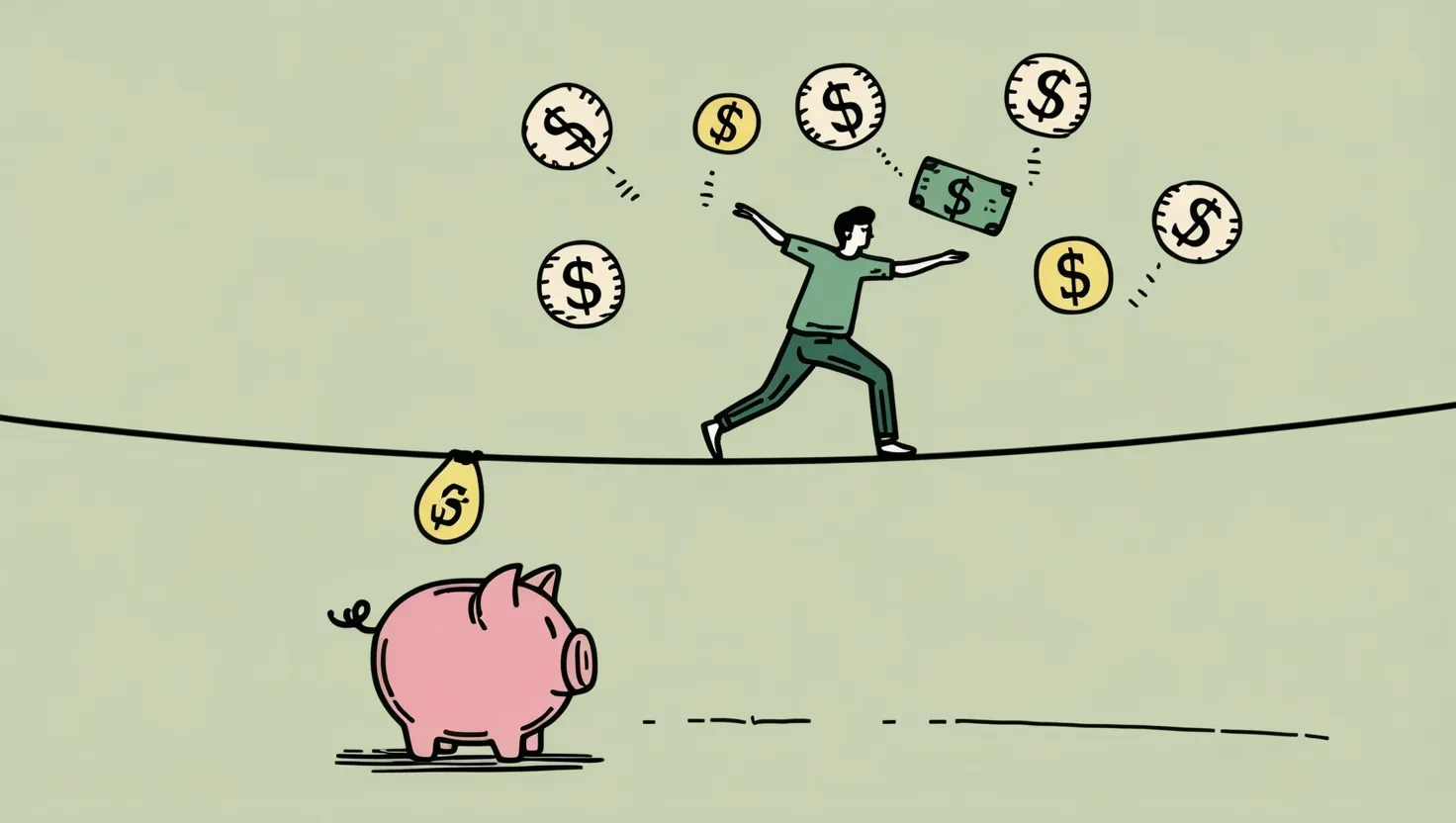When it comes to managing our finances, we often find ourselves stuck in a routine of conventional advice: cut back on dining out, cancel subscription services, and shop during sales. While these tips are certainly helpful, there are numerous unconventional strategies that can significantly impact our savings. Here are some unique and often overlooked methods to reduce your daily expenses and boost your savings.
The Power of a “No-Spend” Day
Imagine a day where you don’t spend a single dollar. No coffee from the coffee shop, no lunch out, no impulse buys. This concept, known as a “no-spend” day, can be a powerful tool in your financial arsenal. By designating one day a week as a no-spend day, you can save a substantial amount of money over time. It’s not just about the money; it’s also about developing a mindset of frugality and mindfulness about your spending habits.
For instance, if you normally spend $20 on lunch and another $10 on miscellaneous items each day, a no-spend day could save you $30. Over the course of a year, that’s $1,560. It’s a simple yet effective way to cut back without feeling deprived.
Cashback Apps and Browser Extensions
We live in an era where technology can be our best friend when it comes to saving money. Cashback apps and browser extensions are tools that many people overlook but can provide significant returns. Apps like Rakuten, Ibotta, and Fetch Rewards offer cashback on everyday purchases, from groceries to clothing. Browser extensions like Honey and CamelCamelCamel alert you to discounts and price drops on items you’re interested in.
These tools work seamlessly in the background, ensuring you get the best deals without any extra effort. For example, if you use a cashback app for your weekly grocery shopping, you could earn an average of 5% cashback, which translates to $25 back on a $500 monthly grocery bill.
Negotiating Bills and Subscriptions
We often accept our bills and subscription fees at face value, but did you know that many of these costs are negotiable? Whether it’s your cable bill, internet service, or insurance premiums, there’s often room for negotiation. Companies want to retain customers, and a simple phone call can sometimes result in a significant reduction.
Before you call, do your research. Know the market rates and be prepared to explain why you’re requesting a discount. This approach can save you hundreds of dollars annually. For instance, negotiating a $20 reduction on your monthly cable bill could save you $240 per year.
The Minimalist Approach
Minimalism is more than just a lifestyle trend; it’s a financial strategy. By reducing clutter and adopting a minimalist mindset, you can significantly cut down on impulse buying. When you have fewer possessions, you’re less likely to feel the need to buy more.
Start by decluttering your home and adopting a “one in, one out” policy. This means that for every new item you bring into your home, you must get rid of an old one. This approach helps maintain a balanced level of possessions and reduces the temptation to buy unnecessarily.
Sharing Economy and Infrequently Used Items
The sharing economy is a great way to save money on items you don’t use frequently. Platforms like Tool Library, where you can borrow tools instead of buying them, or car-sharing services like Zipcar, can be incredibly cost-effective.
For example, if you need a power drill only once a year, it doesn’t make sense to buy one. Borrowing it from a tool library saves you the upfront cost and storage space. Similarly, if you don’t drive often, car-sharing services can provide you with a vehicle when you need it without the long-term commitment of car ownership.
Leveraging Free Community Resources
Your local community is often a treasure trove of free resources and events that can save you money and enrich your life. From free museum days to community concerts and parks, there are plenty of ways to enjoy entertainment without spending a dime.
Check your local event calendar regularly to find out what’s happening in your area. Many libraries also offer free access to books, movies, and even streaming services. By taking advantage of these resources, you can save money on entertainment and still have a fulfilling social life.
Mastering Meal Planning and Bulk Cooking
Meal planning and bulk cooking are not just about saving money; they’re also about eating healthier and reducing food waste. By planning your meals for the week and cooking in bulk, you can avoid last-minute takeout orders and reduce your grocery bills.
Start by making a weekly meal plan and then create a shopping list based on that plan. Buy ingredients in bulk and cook meals that can be reheated throughout the week. This approach not only saves you money but also ensures that you’re eating nutritious meals.
Alternative Transportation Methods
Transportation costs can be a significant drain on your finances, but there are alternative methods that can save you money. Consider using public transportation, biking, or even carpooling to work.
For shorter trips, walking or biking can be a great way to save money and get some exercise. If you need to travel longer distances, look into public transportation options or carpooling with colleagues. These alternatives can save you money on fuel, maintenance, and parking.
Energy-Saving Techniques at Home
Small changes in your energy usage can add up to big savings over time. Simple actions like using smart power strips, swapping to energy-efficient appliances, and insulating your home can make a significant difference.
For instance, using a smart thermostat can help you regulate your home’s temperature more efficiently, saving you up to $200 annually on your heating and cooling bills. Additionally, unplugging appliances when not in use can prevent standby power consumption, which can save you another $100 per year.
Bartering and Skill Exchanges
Bartering and skill exchanges are ancient practices that can be incredibly effective in today’s economy. By exchanging skills or services with others in your community, you can save money on things you need without spending a dime.
For example, if you’re a skilled cook and your neighbor is a talented gardener, you could exchange cooking lessons for fresh produce. This approach not only saves you money but also fosters community relationships and mutual support.
In conclusion, saving money and boosting your savings doesn’t have to be about drastic changes or sacrifices. By implementing these unconventional strategies, you can make significant impacts on your finances without feeling deprived. Whether it’s through a “no-spend” day, leveraging cashback apps, or embracing minimalism, there are countless ways to cut expenses and grow your savings. So, the next time you’re thinking about how to save more, consider these unique and often overlooked methods – they might just be the key to achieving your financial goals.






